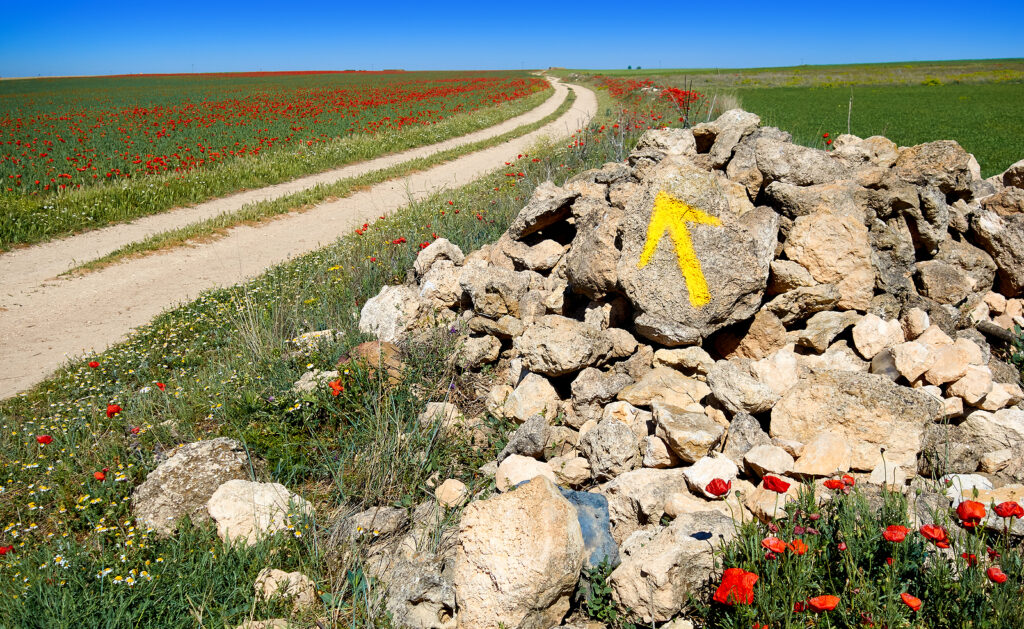
The Camino de Santiago (El Camino) is an ancient Christian pilgrimage route that dates back to medieval times, welcoming travelers from trails all around Europe to the Cathedral of Santiago de Compostela in Galicia, Spain. I heard about El Camino when I was 20 years old and had felt more connected than ever to my spirituality as a student at a Jesuit university.
When I finished undergrad, I gradually lost touch with my faith since I no longer had a built-in community with whom I could share it. I wanted to feel like part of a community again and reconnect with my faith, so I returned to my old dream of walking the Camino. I planned to finish my spring semester of grad school and gather together the little money I had for this ambitious walk through Spain in the summer of 2020. A budget was set, a cheap backpack bought, a plane ticket booked—and then, the coronavirus hit.
RELATED: How to Find a Spiritual Community That Fits
All of my plans were canceled, and my summer dreams quickly crushed. It felt like a sign that my attempts to connect with God were fruitless, and I entered a dark headspace thinking about the uncertain future we were all facing. I was so focused on what the pandemic had taken from me, that I could not see beyond the day in front of me.
I went through the motions of my grad program’s summer semester classes, unfortunately now online, but I felt very disconnected. My thoughts returned to the Camino and the promise that it once brought me of re-exploring my faith. The Camino was out of reach, but maybe the act of taking a pilgrimage did not have to be impossible.
Eventually, I broke the idea of pilgrimage up into basic components: time for self-reflection, walking in the great outdoors, and exploring somewhere new. I was surprised about how this exercise restored a sense of control.
RELATED: How to Keep a Spiritual Journal (With Writing Prompts to Get You Started!)
I immediately started planning a new kind of pilgrimage. In the following days, I planned small trips to different hiking trails, staying outside in remote places so I could keep myself and others safe while on my self-made pilgrimage.
The route I took was an unconventional one. While most pilgrims explore religious sites, statues and relics, I could not even enter a church because of the pandemic. I would not be able to talk to a priest or a spiritual director as I had done in the past, so I had to hope I could connect with my spirituality alone.
I sang rock music in my car and drank too much coffee. I would drive for hours and realize that I had not been thinking about anything in particular. My absentmindedness irritated me because I was supposed to be connecting with God. Sometimes, I would quiet my music and try to think about what a conversation with God would sound like. Mostly, I ended up just marveling at the scenery around me instead.
Even though I felt I was failing to connect with God, I was becoming more content. Little moments filled me with warmth and a confidence in myself that had felt absent in quarantine. My favorite of these moments came on Blue Ridge Parkway, an unpopulated, scenic road in Virginia that I had chosen to take specifically for the sake of the view. Past counselors and mentors have frequently advised me that I need to “stop and smell the flowers” to appreciate the small things more; so I drove slowly to enjoy the beautiful surroundings.
RELATED: How to Do an at-Home Retreat
As I drove, I noticed a car appear behind me, and I felt pressure to move faster to get out of their way, even though I was going the speed limit. I exchanged the scenery for staring at the car in my rearview mirror.
I asked myself, “Why do I always let what’s behind me push me like this? Look at what it’s doing to me, I’m missing the view right now!”
This car scenario was cathartic for me, as I saw its metaphorical value: I frequently dwell on the past. My pre-COVID dream of El Camino had been holding me back from having new dreams for a long time.
My pilgrimage gave me a sense of purpose and helped me be more proactive in shaping my own life away after so much had been taken away. The pandemic had prevented me from going on the Camino, but I still found a way to see new places and be in nature. It was becoming clear to me that there was always a way to go forward even when everything seemed bleak.
I made a resolution to myself to always keep moving forward. I finally had the confidence to do it because I regained my own sense of agency on this road trip. After all, I did just complete a pilgrimage and I did not even have to go to Spain to do it.
My pilgrimage was quite ordinary, but I think it was supposed to be. In these mundane moments, my mind was quiet and I felt peaceful and, for the first time in a while, optimistic about how I could shape my own future. Maybe Jesus didn’t take the wheel on this trip, but I think he sat beside me until I could realize for myself the simple gift of knowing that everything was going to be alright.